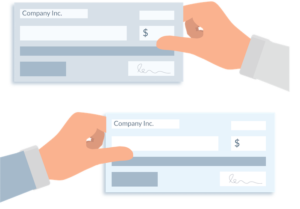
The Nevada Prompt Payment Acts were enacted to ensure that anyone working on a private or public project within the state are paid in a timely fashion. This is achieved by essentially structuring a default pay schedule along with penalties for non-compliance. Let’s take a look at the specific rules governing public and private construction projects.
Nevada prompt pay on public projects
The Nevada prompt payment laws governing public works projects are found in Nev. Rev. Stat. §§338.400-338.645. These rules cover payments on all publicly funded construction projects; with a few exceptions. The prompt pay rules don’t apply to contracts relating to the normal property maintenance, emergency contracts, and contracts with the Department of Transportation.
Prompt Payment 101: Help With Fast Payment
Timeframes for payment
Payments from a public entity to prime contractors
Progress payments should be made according to the pay schedule set out in the contract. If however, the contract is silent as to payment timing, then progress payments must be made within 30 days of receipt of the progress bill. As for final payments, these are due within 30 days of one of the following events; occupancy of the property, full or partial use, or the filing of a notice of completion.
Payments from a prime contractor to subcontractors
Once the prime contractor receives payment from the owner, the clock starts to tick on the payment deadline. For all other payments, the timeframe for payment is within 10 days of receipt of payment. This goes for all progress and final payments down the chain.
Late payment
Grounds for withholding
The public entity and contractors may withhold payments in an amount that is sufficient to pay the expenses they reasonably expect to incur for failure to comply with the contract or applicable building code, law or regulation. If it is the public body withholding payment from the prime contractor, the must provide notice of withholding within 20 days of the receipt of the payment request. As for payments from the prime to subcontractors (and so on), this written notice is required within 10 days of receipt of the payment request.
Penalties for late payment
Any payments wrongfully withheld by the public entity (or withheld without notice being provided) the unpaid amount will accrue an interest penalty. The rate isn’t explicitly stated, rather the statute provides for an interest rate equal to the lowest daily prime rate of the three largest banks of the US on the date the contract was entered into, plus 2%.
Nevada prompt pay on private projects
The Nevada Private Works Prompt Pay Act is codified in N.R.S. §624.609 et seq. These regulations cover all private projects within the state and all payments made on said projects.
Timeframes for payment
Payments from an owner to general contractors
Once a contractor has performed in accordance with the contract terms, they will be entitled to submit a pay application. The schedule of progress payments will be governed by the contract terms themselves. If the contract is silent on the issue, then payment should be made within 21 days after the GC submits their request for payment.
The deadline for final payments begins to count when the property is occupied or used, or the property is available for occupancy or use. If the GC provides a written notice of availability to the owner or a certificate of occupancy is issued; the property is considered “available for its intended use.”
Payments from a general contractor to subcontractors
If the contract between the parties establishes a payment schedule, then payments will be made accordingly to the terms. So what if there is no payment schedule or even a written contract for that matter? Then the subcontractor will be entitled to payment either 30 days from the submission of a pay application, or within 10 days of the general contractor’s receipt of payment from the property owner.
Late payment
Grounds for withholding
The private project prompt pay statutes list out specific reasons for both owners and higher-tiered contractors that will allow them to withhold payment longer than the statutory deadline.
If an owner or higher-tiered contractor has complied with all the necessary notice requirements, the owner may withhold from the prime contractor (1) retainage no more than 10% of the amount of payment to be made, or (2) the value of either the labor or materials that weren’t provided, or costs and expenses necessary to correct any non-complaint labor or materials. If withholding to repair defective/non-compliant work, the amount can’t be any more than 50% of the retention withheld.
Penalties for late payment
Any payments that are wrongfully withheld are subject to the accrual of interest. The rate of interest for private projects is also not particularly clear. If the contract provides an interest rate for late payment, then that will apply. However, if not interest rate is provided, then the statutory rate will apply. The interest rate will be equal to the prime rate in the largest bank in Nevada as determined by the Commissioner of Financial Institutions; plus 2%.
There is also a provision regarding the award of attorney fees. These may be awarded to either party depending on the circumstances. If the lower-tiered party prevails, then they will be awarded attorney’s fees. However, if the lower-tiered party stopped work or terminated the agreement without a reasonable basis
Bottom line
Late payment or nonpayment can be frustrating for anyone working on a project. Unfortunately, this is a common occurrence in the construction industry. Knowing your rights under the state prompt payment laws is a great way to not only protect your right to timely payments but can help avoid the harsh penalties associated with paying subs and suppliers on your next project.
Additional resources
- How to Make a Claim Under Prompt Payment
- Nevada Retainage | A Guide to Public & Private Projects
- How to File a Nevada Mechanics Lien | A Step-by-Step Guide




